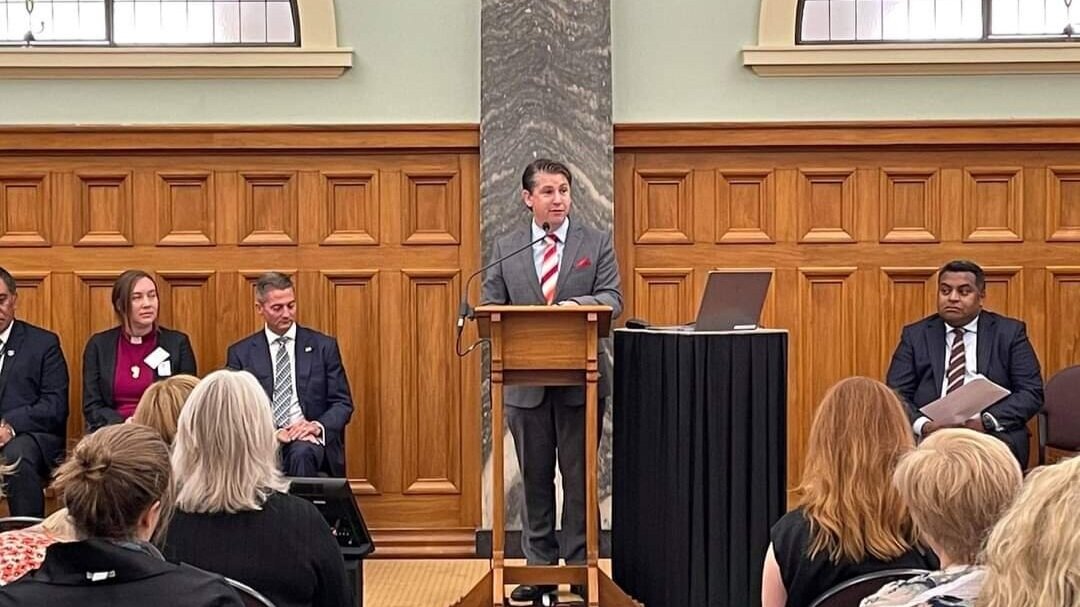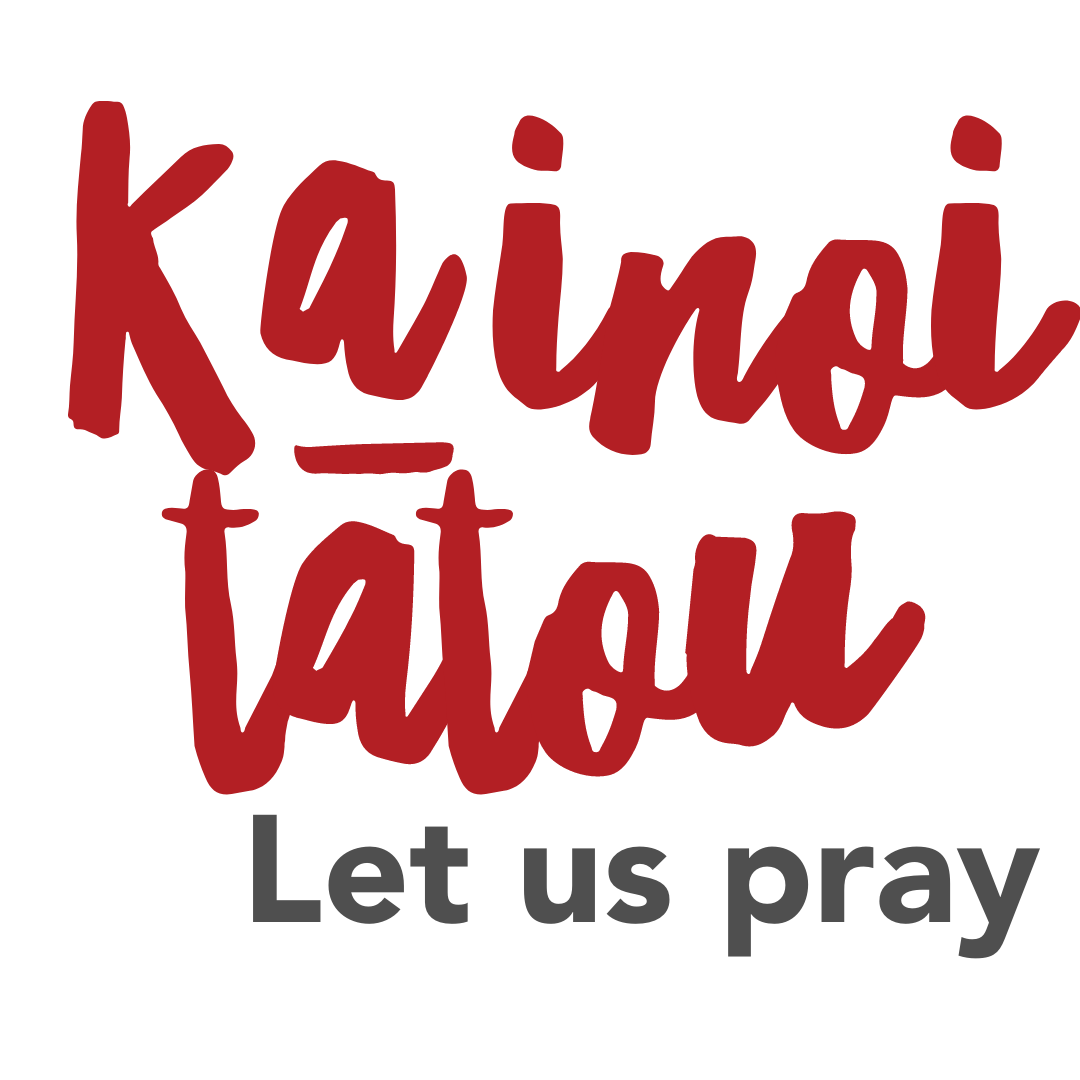Conference takes anti-trafficking mahi to next level
Government ministers, CEOs, NGO leaders and migrant community representatives were all part of the recent "Tango i te Kaupae Muri - Take the Next Step" conference on people trafficking and exploitation, which we co-organised. It was a conference at which Government launched our new five year action plan to tackle the issue, and feedback suggests it has taken our country's response to the issue to a whole new level. Yet within days of it ending, another prosecution has hit the news - and the exploitation happened right under our noses.
Hon. Michael Wood, Minister for Workplace Relations and Safety, officially opens the “Take the Next Step” conference in Parliament’s Grand Hall.
A Lower Hutt scaffolding firm has been fined for unlawfully deducting wages from three Filipino workers, and our Deacon for Social Justice, Rev. Chris Frazer, says the building site concerned is close to where she lives. People often say to her that they don't understand how trafficking, exploitation or slavery can be happening in our country, but she says "we can't ignore the fact that it will be happening within walking distance of the Anglican Centre, or anywhere else [in our diocese]".
The Government's new five year action plan was launched at the conference, and in it, the Minister for Workplace Relations and Safety says that the past twelve years has seen 51 victims of people trafficking identified in our country, and four prosecutions undertaken. "These numbers likely only reflect the tip of the iceberg and more needs to be done to combat these crimes," the Minister wrote.
That mahi continued in a positive and collaborative way at the conference, Chris tells us, and a major theme that emerged was the importance of hearing victims' voices. "In the Joseph Matamata case, he spent a long time in Samoa selling a dream," Chris said. A dream of coming to New Zealand to earn money and support families back home, but ultimately, a dream that leaves its victims heartbroken.
"In situations of exploitation, people are too scared to speak up for fear of being sent home with nothing," Chris says, but in the Lower Hutt case, speaking up is what helped the Filipino workers. Jeanie Borsboom is the Labour Inspectorate's construction sector strategy lead, and she told RNZ in last week's article "The workers have done the right thing in going to the Philippines Embassy. Migrants are entitled to the same rights as New Zealand workers and the inspectorate works closely with the embassy to ensure Filipino workers have access to information about their rights and are treated fairly in the workplace."
Taking the courage to speak up relies on someone else having the courage and empathy to listen, and that is something we can all do, says Chris. The way in which the Church operates in every community, and the way in which God's people interact with every sector and slice of society is a huge asset. "It was made very clear at the conference that if the Church is not involved in the work of ending modern forms of slavery, then the work will fail," Chris said.
Bishop Eleanor helped to open the conference and she committed us to supporting this work. "People's on-the-ground participation in local church communities has been an instrumental key in identifying and subsequently addressing worker exploitation and modern day slavery in this country," she told the conference. "On behalf of our Diocese, I wholeheartedly offer whatever local resource and grass-roots partnerships are needed to help with the rollout of this vital action plan. Let us work together in a grass roots collaboration to make sure that anybody who identifies something that does not seem right, knows what to do, knows who to contact, knows what questions to ask and who to ask those questions of."
And now, the work continues. Chris showed us screes of mind maps and Post-It Notes of people's commitment to actions that arose from the conference. In our context, much of that work will focus on how we can equip our local faith communities to have that knowledge of how to care, how to listen, and how to respond. As that mahi continues, we will bring news of it to our diocesan whānau.
In the meantime, we must all pray, listen, and in Chris' words, dare to care.
Let's pray for Chris and other members of the Advisory Panel as they digest the outcomes of this conference, and for those responsible for enacting the Government's action plan. Pray that we each will have eyes to see and ears to hear when something is amiss - and that we, with the Spirit's prompting, will act to care for another member of the human family who may be in strife.




